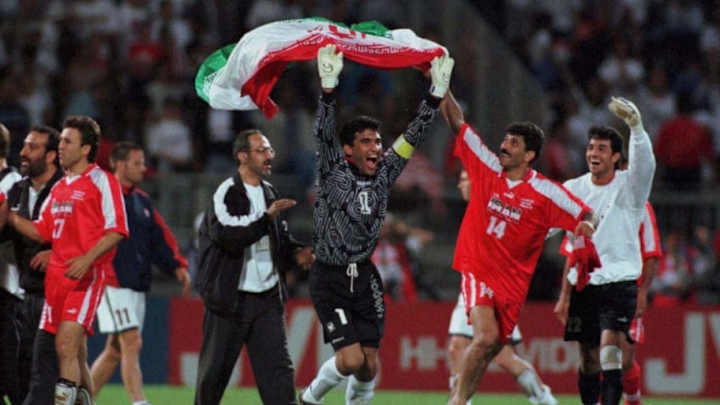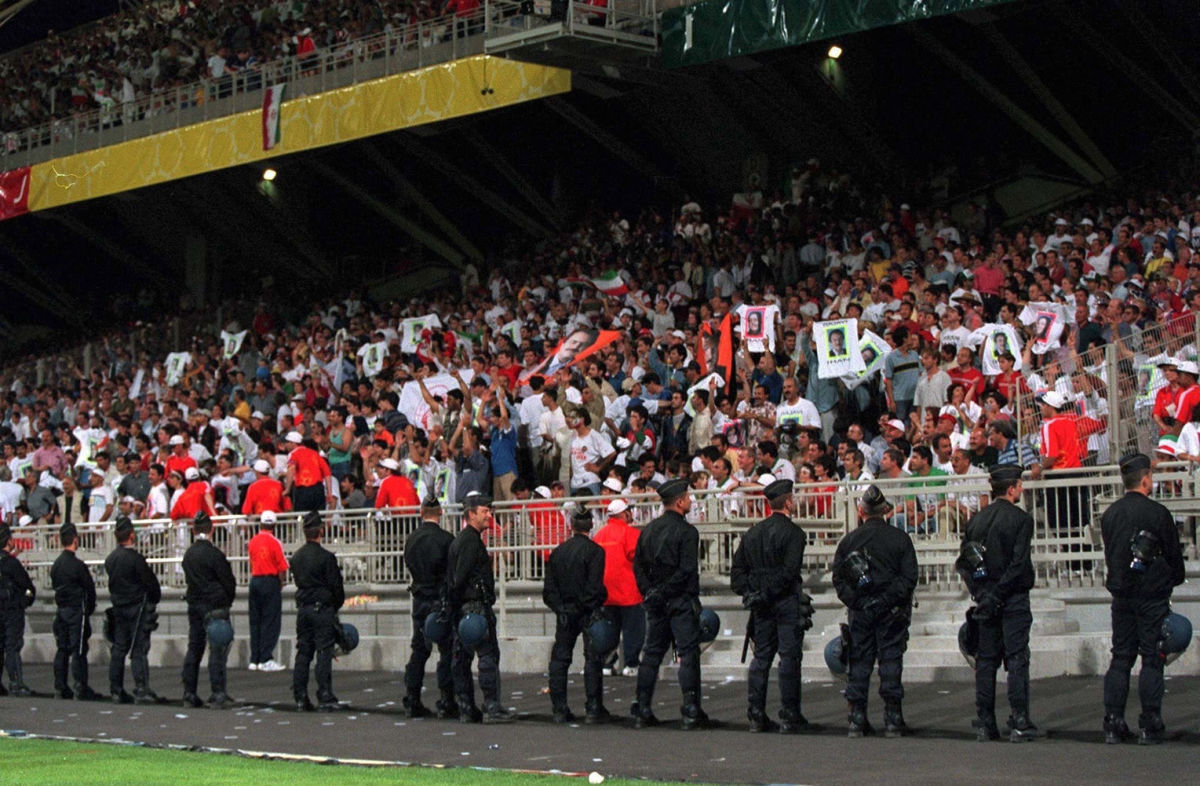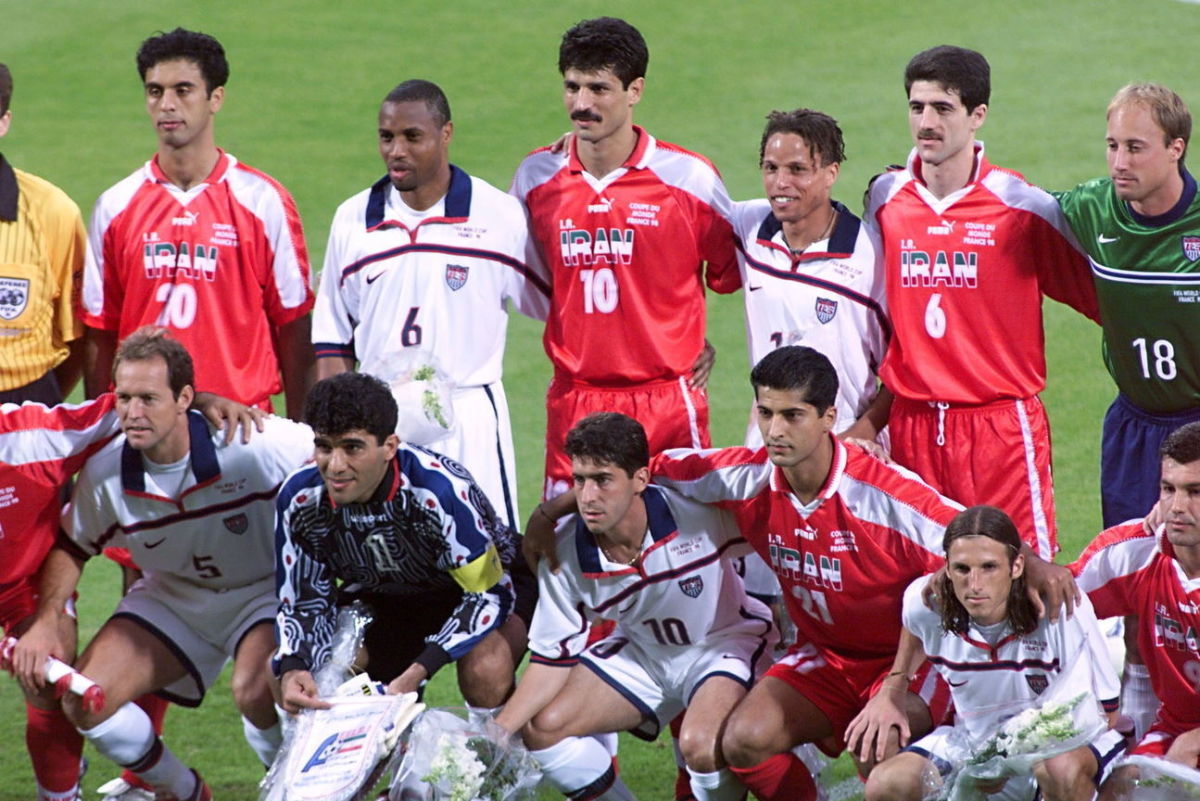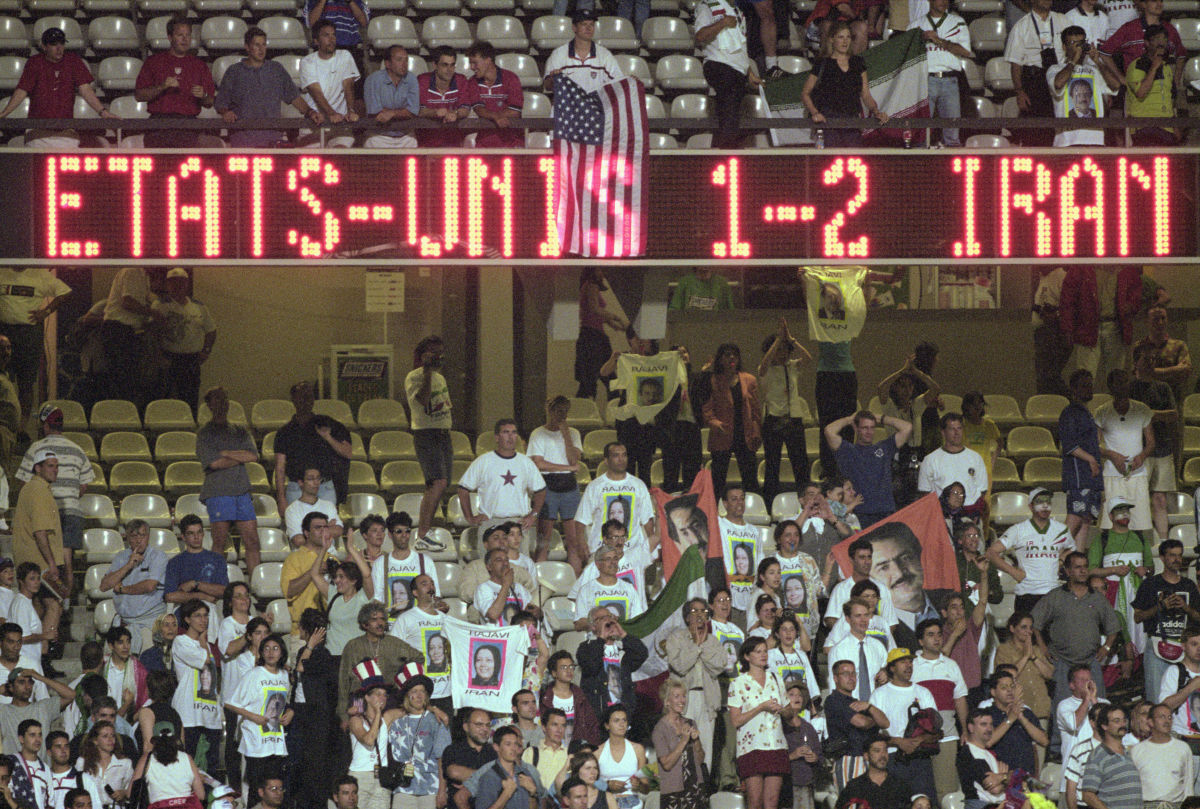World Cup Countdown: 5 Weeks to Go - USA vs Iran, the Most Politically Charged Game in WC History

"The mother of all games," the president of the US Soccer Federation labelled USA's 1998 World Cup showdown with Iran after the two sides were drawn together in Group F, all the while the political regime in Tehran drowned in anxiety.
Despite nearly two decades passing after an Iranian revolution ousted the last pro-American Shah in 1979, relationships between the two countries remained hostile. France, more so Lyon, would become the centre of a political frenzy; a hotbed of issues to which responsibility fell on the shoulders of one man more so than any other - FIFA media officer and Iranian-born Mehrdad Masoudi.
"œOne of the first problems was that Iran were team B and the USA were team A," he said. "According to FIFA regulations, team B should walk towards team A for the pre-match handshakes, but Iran's Supreme Leader Khamenei gave express orders that the Iranian team must not walk towards the Americans."
Although seeming somewhat trivial on any other day, the Iranian regime could not be seen to be offering conformity to the USA nor seem the weaker of the two parties, although the governing body's rulings would have provided a suitable excuse. And 'team B' eventually got their wish, with a compromise made by Masoudi that the Americans would advance, but that was the least of their worries.

Off the pitch, an Iraqi-based terrorist group, Mujahedin Khalq - an organisation funded by Saddam Hussein, whose primary aim was to destabilise the Iranian regime - had bought 7,000 tickets for the match and planned to stage a protest during the 90 minutes. Under no uncertain terms were they welcome in Lyon, but with crowds of over 40,000 to police, identifying specific targets would prove difficult.
"œFrom the intelligence we'd received, we knew who the main troublemakers would be," Masoudi stated. "We issued the TV cameramen with photos, so they knew which people and which banners to avoid. The match was being beamed around the world, and the last thing we wanted was for this group to sabotage the occasion and use it for their own political purpose."
Despite FIFA and Stade Gerland's security's best efforts, many of the protestors successfully smuggled in portions of banners, which were fastened together inside the stadium using Velcro. However, with the camera operatives pre-warned about such an eventuality, looking on from television, it would appear a peacefully observed environment surrounded events unfolding on the pitch; everything FIFA and the Iranian Football Federation could have wished for.
"œThe president of the Iranian Federation wanted to use the match to show his country in the best possible light," Masoudi retorted. "He asked the kit man to buy a bunch of flowers for every player to take onto the pitch. They were white roses, a symbol of peace in Iran."

A collective pre-match photo, one that would symbolise the unity of two nations under the banner of football, would be taken. Although as Swiss referee Urs Meier's opening whistle sounded, the contest proved to be anything but. A competitive, full-blooded clash - the perfect scenario for the Iranians - was played out on an afternoon where not just political history would grab the headlines.
Five minutes before half time, Hamid Estili latched onto a Javad Zarincheh cross and looped his header over the outstretched arm of Kasey Keller to give the underdogs an unlikely lead, as well as give his country the lead for the first time in the World Cup - a moment that was met with elation never before experienced for Iran. However, that sense of exuberance was only to increase for 'team B' as Mehdi Mahdavikia doubled his side's advantage in the 84th minute after sprinting over 50 yards to reach Ali Daei's through ball before lashing home; confining Brian McBride’s 87th-minute goal to little more than a consolation for the United States.
"œWhen Iran qualified for the World Cup after overcoming Australia in Melbourne, the whole of Iran celebrated," Masoudi stated. "People were dancing in the streets of Tehran, openly drinking alcohol and the women took off their headscarves.
"The Revolutionary Guard didn't do anything about it because they were also so happy. They were football fans first and Revolutionary Guards second. Victory against the USA at France 98 brought back all these emotions and celebrations. The Iranian regime was quite scared by this."

And still to this day, the 51-year-old is adored by his fellow countrymen, stating several years after heading the opener: “People from five to even 95 admire me for that goal. Many Iranians who are living abroad now proudly confess that they’re Iranian. That victory unified all Iranians.”
However, the contest, which ended USA's run in the 1998 World Cup seemed to do more than unite a country, but it also significantly reduced tensions between the two conflicting nations, with US defender Jeff Agoos stating at the time: "We did more in 90 minutes than the politicians did in 20 years."
18 months later, improved relations led to the two teams meeting again in a friendly in Pasadena, California. "œIn many respects, this match was far more significant because it was a friendly and it needed the co-operation of both sides," added Masoudi. "œBut it could only have happened if the match at France 98 was a success."
Indeed it was. What was initially billed as the most politically charged game in World Cup and potentially even footballing history turned out to be Iran's finest hour in the sport; 90 minutes that will never be forgotten.
